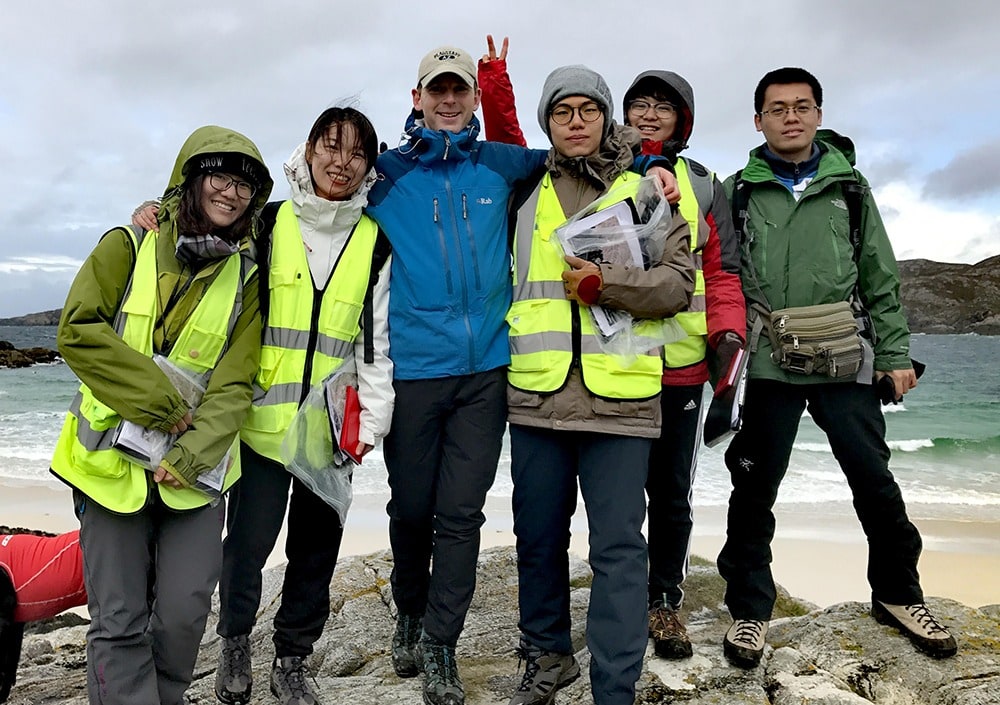Professors David Selby and Keith Lindsey, are scientists at the University of Durham explain about their blooming relationship with universities in Wuhan
The University of Durham has close relationships with universities in Wuhan. How did they come about?
KL: Our partnership is specifically with Wuhan and the Huazhong Agricultural University. The link started in 2000 when someone who was working on cotton there contacted me and asked if he can do some work in our lab. He came on a sabbatical visit and then invited me back to Wuhan. I went in 2002 and we have been exchanging visits and people ever since and it has now become a formal relationship. Myself and colleague Patrick Hussey are officially visiting professors there and have joint research interests.
DS: For me, it started in 2006, when one of their professors sent an email out of the blue saying he was interested in doing work with me. I run a lab that’s quite unique and use techniques that few others can. So there is often a lot of interest. He visited shortly after and from then on I have been working with him. Four years ago we started a closer relationship. I give classes to the first and second years in China, and I take Chinese students on fieldwork. In the last few years, I have been taking them to places like the Lake District and north-west Scotland. Then two years ago I started a ‘2+2 programme’, where students have a joint degree, spending two years in the UK and two years in China.

Keith Lindsey
What is your main research area and how do you collaborate with China?
KL: I’m working with the world-leading group on cotton research, looking to increase yields and quality. In terms of quality, that means fibre length and colour; and in terms of yield, it means resistance to pests and diseases. I am also interested in the evolution of crops, forced evolution through selective breading through thousands of years and how the genome has changed over that time.
DS: There are three aspects to my research – the dating of metals enriched in the earth crust and how they are formed. This can then be used by exploration geologists to find economic benefits. Then there is the timing of oil and gas formations and finally the evolution of paleoclimate. China has old rocks and better rock formations from the pre-Cambrian era [over 500-million-years-old] that almost anywhere else in the world, and they have been very well preserved.
What benefits does the relationship with China bring?
KL: Cultural exchange is a huge benefit as we see Chinese students come visit labs from three-months to a year. The amount of money available for research in China is also huge compared to the UK. The kind of research we carry out would not be fundable in the UK – or the EU or US for that matter – we are benefitting from the outputs of all that funding. We contribute intellectually to the research we publish jointly. As a visiting professor, I go over every summer for a few weeks to write papers. The real value of this is setting up long term relationships – it allows collaborative research, and culturally it allows undergrads and young grads to experience the difference.
Every country wants to show they are doing excellent work and China wants to show they are leading the world
DS: It gives us access to different areas that would normally be hard to get into. I wouldn’t be able to access gold mines in China without having our local expert at hand. Also, it enables us to take studies from China and publish them worldwide rather than being left just in Chinese literature. Economically, it allows us to utilise grants and international applications between UK and China but the training of young people is most important. Chinese students are able to visit the UK and UK universities to get training. They are trained in a novel technique which can benefit them when they do post-doctorate studies.

David Selby with Chinese students
Why is China investing so much more in science than elsewhere?
KL: They have a view that investment in science is going to underpin a strong economy so that’s fundamental – they’re trying to create a stable economy that will set them up for the future. There are also immediate benefits [to researching food science] such as feeding people and economic output as China is the biggest producers of cotton globally.
DS: Every country wants to show they are doing excellent work and China wants to show they are leading the world. Also, there is a very large carrot for Chinese academics, in that in order to get a promotion they have to produce a certain amount [of papers] in English language journals. Publications in the right journals are essential for promotion and also sometimes come with a financial reward.
How does the relationship affect the wider community?
KL: Durham is developing a global strategy and thinking about its relationship with the outside work and how that can benefit the city. The targets for non-UK students is 39 percent – it is over 20 percent already.
DS: The Chinese community in Durham has grown a lot. The landscape is definitely changing – I’m inundated from people from China wanting to come over.
Professor David Selby is associate editor of the Society of Economic Geology, Department of Earth Sciences, and Professor Keith Lindsey is Head of the Department of Biosciences, both at the University of Durham.


